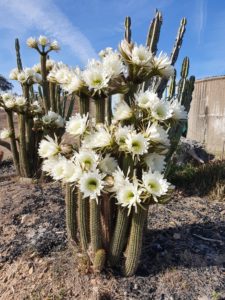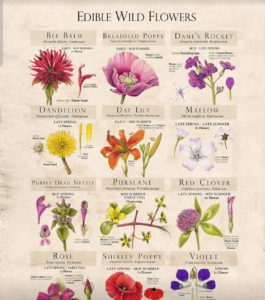November was pollinator month and as fires ravaged much of the NSW and drought takes its ongoing toll on local landscapes, apiarists (or bee keepers) have been busy supporting their bees – wild and domestic – from the stresses of the current conditions.
With honey bees performing about 80 percent of all pollination worldwide and 70 out of the top 100 human food crops — which supply about 90 percent of the world’s nutrition — pollinated by bees, the importance of supporting and maintaining our small but essential pollinators is crucial.
Taking time to talk to beekeeper and Watershed Landcare member Heidi Ralph we discussed the importance of bees and how communities could help support these essential members of our ecosystems.
Q & A with Heidi Ralph
What drew you to beekeeping?
I was drawn to beekeeping to do my little bit to save the bees. I have two hives one on my acreage and one in my local township, to ensure the survival of at least one of my colonies. The taste and colour are quite different between the two, due to availability of pollen sources!
How long have you been working in this industry?
I have been a beekeeper for three years now, both my hives are flow hives

Bees have come into the spotlight recently with a focus on their fundamental importance to biodiversity. Why do you think that is?
(I think it’s because) bees are so important to pollinate crops and the backyard gardener who grows their own produce, the honey they make is just a bonus! And of course, Bees are such an important creature in the biodiversity cycle.
In your experience, what are the big challenges that for bee and insect populations and what can we do to help that.
We can help save bees by cutting out insecticides, pesticides and herbicides. We need to educate farmers and Councils to choose environmentally friendly choices when considering weed control and pest control.
Another thing we can do is plant bee friendly plants in our gardens and parks, windbreaks and nature strips. We can also leave water bowls filled with rocks so bees can source water in these harsh drought conditions.
Any tricks or tips to help our Landcare communities help support bees and insects?
More bee groups would also be an advantage in every community but also to spread education and advice and also to share nucleus as well and establish more hives.
 Top plants to help with bees?
Top plants to help with bees?
Some bee loving plants are lavender, tansy, borage, flowering herbs, flowering weeds and thistle and the beloved eucalyptus.
What is your favourite bee and why?
I don’t have a favourite bee, I have Italian bees but I love the natives, and the bumblebees too.
NSW Landcare Case Studies
Case Study: Native Bee Workshop with Weddin Landcare
Case Study: Floral calendars, pollen, nectar and bees with Central Tablelands Landcare
For more information about beekeeping and the importance of pollinators
Amateur Beekeepers Association NSW
Australian Honey Bee Industry Council (AHBIC)
The Future of the Australian Honeybee Industry by the CSIRO
The conservation value of urban green space habitats for Australian native bee communities from Science Direct